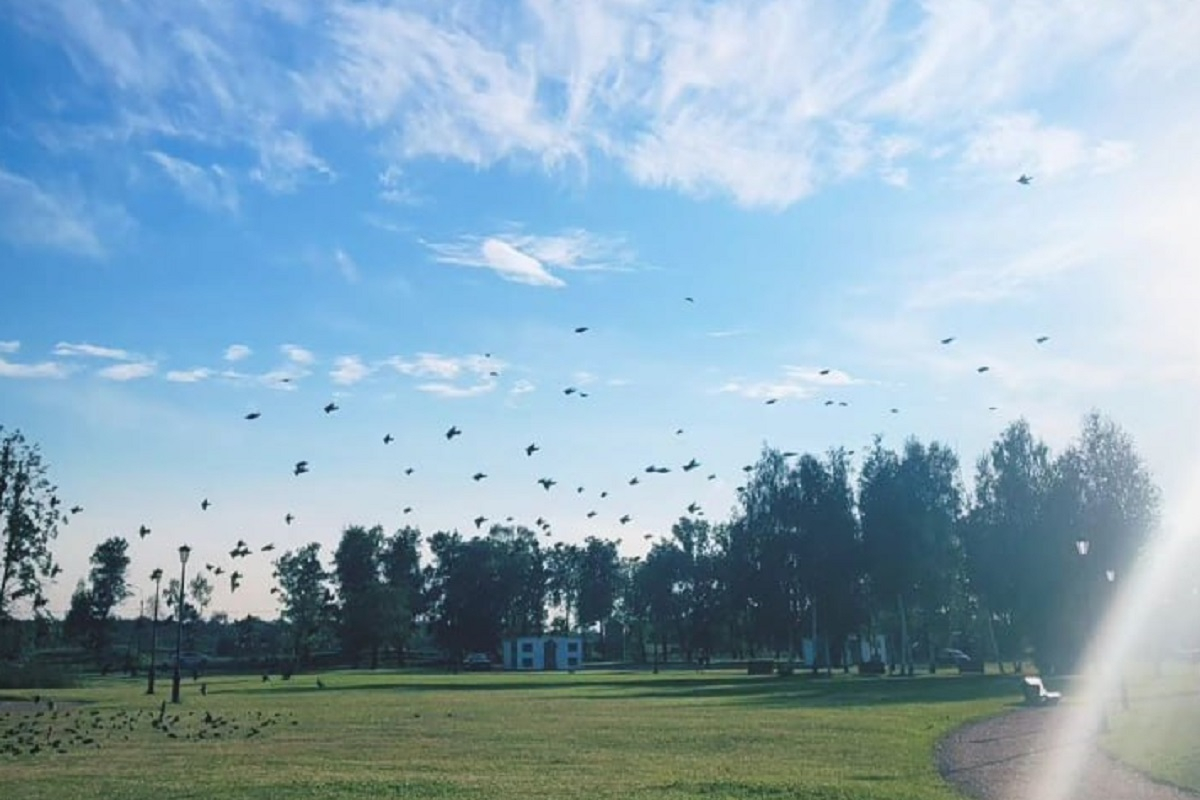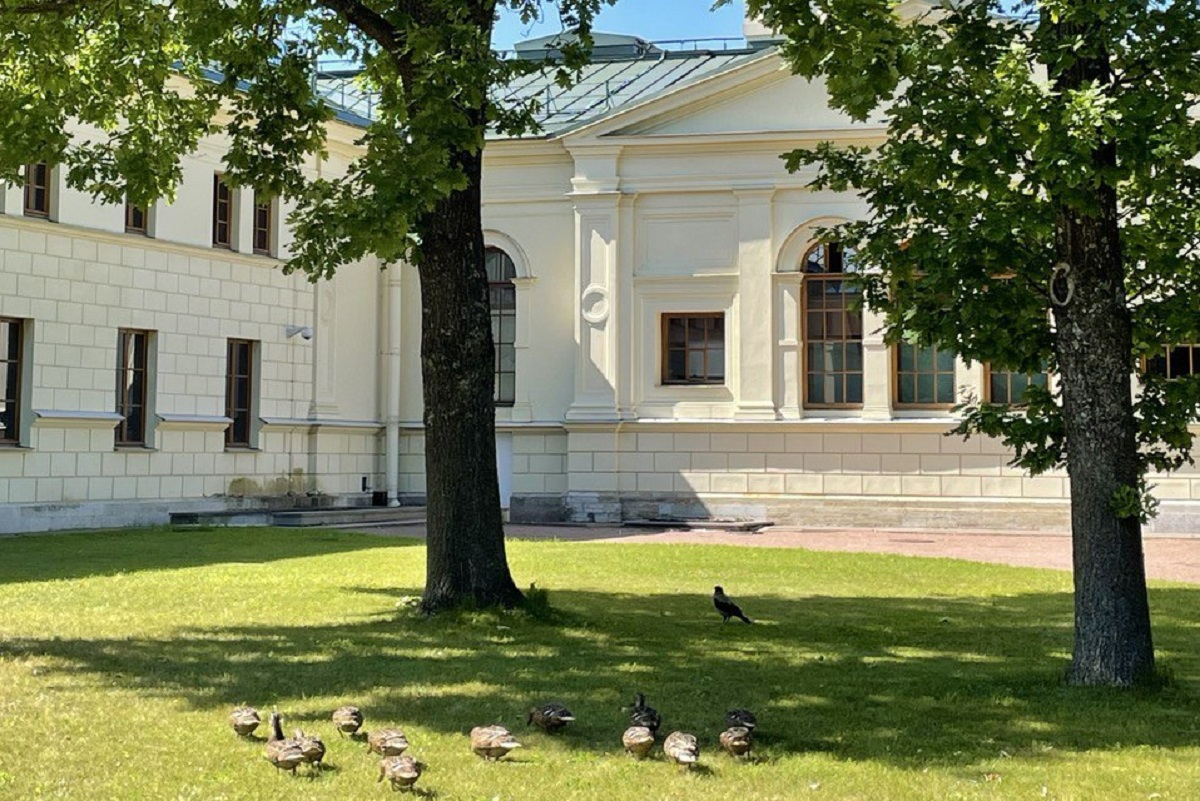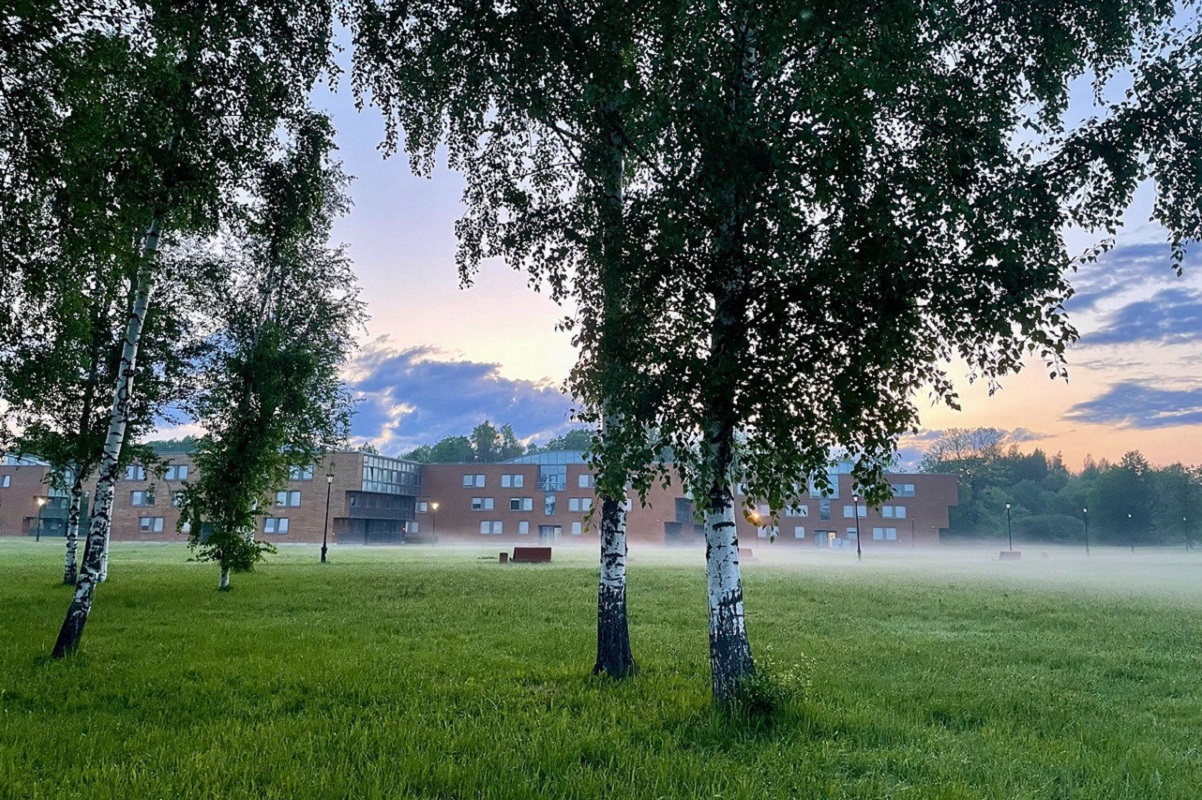Voices of Mikhailovskaya Dacha: St Petersburg University students study the campus’s bird population as part of a sustainable development initiative
The study was initiated by the GSOM Impact Committee, a student organisation of the Graduate School of Management at St Petersburg University (GSOM SPbU), with expert support from ornithologists of the University and Letovo School. The students conducted research and have discovered that approximately 50 species of birds inhabit the Mikhailovskaya Dacha campus.
The activists combined the efforts of 12 student volunteers from different areas of study at St Petersburg University, along with academics from the Department of Geoecology, the Department of Vertebrate Zoology, and the Department of Medical Psychology and Psychophysiology at St Petersburg University. The Letovo School equipped the students with a unique device for recording bird vocalisations, called LetovoBirdLab.
The GSOM Impact Committee was established at the Graduate School of Management at St Petersburg University to promote the principles of sustainable development and environmentally responsible behaviour.
Natalya Mitrakhovich, Head of the GSOM Impact Committee ESG Club, shared the project’s findings and highlighted the campus’s ideal location for such research. She said, "We learnt that the entire Neva Bay, where the Mikhailovskaya Dacha campus is situated, lies along the intensive migratory route of waterfowl following the White Sea-Baltic flyway. The GSOM SPbU campus and its surrounding areas provide an excellent opportunity to observe birds and enjoy their songs. Minimising the negative impact of human presence on ornithofauna is essential. We have come to the conclusion that it is necessary to place decals of birds of prey on the glass surfaces of the halls of residence to prevent bird collisions."
The students also suggest installing informational signs about the birds inhabiting the Mikhailovskaya Dacha campus. They believe that this will help raise awareness and consciousness among students, lecturers, and visitors to GSOM SPbU.
LetovoBirdLab is based on a neural network developed by researchers from the K Lisa Yang Centre for Conservation Bioacoustics at Cornell University’s Lab of Ornithology, but adapted for offline use. The core of the device is a microcomputer programmed to record and automatically analyse sound files, while the outer shell is a case designed and 3D-printed by school students at Letovo School.
The study was conducted using two methods: continuous 24-hour observations with the device, and mini expeditions involving ornithologists and volunteers. In the first method, the LetovoBirdLab device was installed in a specific location for 24 hours. In the second method, the device was activated for five minutes at each of eight different locations during the research rounds.
The observers also documented the birds they saw and heard, and then compared their observations with the device’s results. The voices of approximately 50 avian species were recorded, including many songbirds such as: the nightingale; European robin; song thrush; willow warbler; wood warbler; sedge warbler; typical warbler; Eurasian blackcap; and common rosefinch. The calls of the mute swan, greylag goose, and Eurasian coot were also captured in the recordings.
Andrey Ivanov, the project’s Principal Investigator and Manager of Sustainable Development Initiatives at GSOM SPbU, explained, "Sustainable development involves balancing economic efficiency, social responsibility, and environmental protection. A key approach at St Petersburg University is ensuring that students gain the knowledge and skills required to succeed in today’s environment, where companies are increasingly focused on social and environmental responsibility. Students learn about the environmental and social aspects of business, develop sustainable growth strategies for companies, and apply these strategies in practice."
Preserving biodiversity is a key aspect of sustainable development. Various species of living organisms play vital roles such as purifying water and air; producing food; protecting us from natural disasters; and performing many other essential functions. Conserving biodiversity ensures the stability of ecosystems.
The project "Ornithofauna of Mikhailovskaya Dacha Campus" was implemented by GSOM SPbU as part of its sustainable development initiatives: "Campus as a Laboratory" and "Green Campus".




